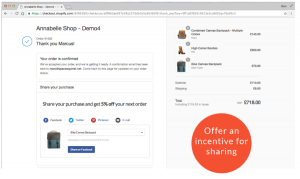
Making money from a website or blog seems like an overdone endeavor, but it is a very doable task for almost everyone.
While each business has a diverse set of needs for their online ventures, as well as budgetary constraints to deal with, luckily, the days of spending thousands of dollars to get a website up and running to the point of generating revenue are in the rearview mirror.
There are many strategies available that can help monetize your platform across the board.
Let’s take a look at three ingenious and proven ways you can turn your website into a profitable undertaking, if not money-raking machine.
1. Tap into affiliate marketing
Want to make money while you golf or lay by the pool? Affiliate marketing is a great place to start. The concept is relatively simple. Basically, you use your website to promote the products and services of other businesses. When consumers buy those items from seeing them on your site, you earn a commission.
Commission rates can vary based on product. Some can be anywhere from 30%-70%.
For example, let’s say you set up an apparel business online, with a blog website where you talk about the latest trends in fashion. Within your posts, you can promote the products or clothing lines of outside retail brands.

Image Source: I Am Stylish
Every time a visitor clicks on a link within the blog and buys the item, the affiliate site makes a percentage.
There are a few components that make up the entity of affiliate marketing.
- The Merchant – This is the actual retailer of the product you are listing on your site. From startups all the way to big enterprises, any supplier could be the merchant behind an affiliate marketing strategy. All they need is a product or service to sell.
- The Affiliate – Also known as the publisher, the affiliate promotes the goods and works to attract prospective customers and direct them to the merchant. The affiliate doesn’t necessarily have to be a blogging site. It can be anything that is simply dedicated to helping users find awesome products or services.

Image Source: This Is Why I’m Broke
- The Consumer – Consumers are the life and blood of affiliate marketing. It is up to the affiliate to do everything they can to market their website to find potential customers. This can be through social media, content marketing, or any other form of digital advertising. An increasing number of affiliate sites are becoming transparent with consumers by conveying their incentives whereas some tend to be more subtle about their tracking system and earnings.
Keep in mind, you are by no means restricted to just physical products. Affiliate marketing with e-books is extremely popular (and simple). There are a lot of affiliate programs out there such as Click2Sell, or Amazon Kindle that can get you started. There are also free services like ClickBank that contain thousands of companies in need of affiliates to promote their products.

Affiliate marketing is based on revenue sharing. If you have a website that gets a decent amount of traffic, getting involved with pertaining retailers is a great way to monetize your site. After all, it works while you’re sleeping.
2. Offer online courses
Are you an expert in your field? If so, a great way to use your knowledge to bring in money from your website is by offering online classes, as described here.
With the evolution of technology, there’s a lot of demand for online courses. If you have skills in areas such as photography, graphic design, creative writing, carpentry, programming, or anything else, you can potentially make good money teaching people who know less than you.
Perhaps the biggest advantage of creating online courses is that they can be used over and over again. If it takes you 40-60 hours to design the class, and you charge $ 500 per head, you can be making money off those hours spent for years to come.
Kajabi is a great platform to start designing courses, membership sites, and training portals to sell your knowledge online.

On this platform, you can go beyond just the courses themselves and create supplementary content such as e-books or email drip sequences to keep your students in the loop.
If you have the knowledge, offering an online course on your website is a great way to make extra money while helping others in the process.
3. Build an eCommerce platform
If you have a product or service to sell, you should really consider building an eCommerce website. As technology advances next to the growing popularity of the internet, people are turning to online shopping more than ever. In fact, online sales in the United States alone are expected to reach $ 523 billion by 2020.
The best part about having an eCommerce platform to sell your goods is that it works beyond business hours and can make sales 24/7. Also, whether you sell your items on a national or global scale, you can reach a much wider audience.
Creating an awesome website for your business can be intimidating. Luckily, there are a lot of tools available to make the process easy. For instance, WiseIntro is a platform that helps professionals of all backgrounds get their business website off the ground. This DIY website builder is great for self-employed experts in areas like photography and graphic design as it uses an array of apps and programs to showcase portfolios.

If you’d like to build your own branded store on a marketplace like Etsy, WiseIntro also lets you choose from a huge arsenal of professional image or video backgrounds and get around to launching your customized store quickly.
Consumers these days tend to look for the quickest and easiest ways to make purchases or hire professionals. Having a stellar eCommerce site or even a store can do wonders to give you a competitive edge regardless of what industry you are in.
Over to you
While these methods are not a surefire way to monetize your website, you have nothing to lose by giving it your best shot.
Don’t be afraid to take different approaches. However, whichever strategy you decide to use, know that most of them take to time to build up.
The last thing you want to do is rush your efforts, as this could turn potential customers off. Keep at it and always be looking for ways you can use your website to improve the lives of visitors.
Digital & Social Articles on Business 2 Community(49)
Report Post







